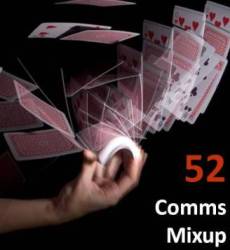Rick Stansbury doesn’t get it. And he’s not the first. Stansbury is just the latest in what’s becoming a long line of college coaches (see Mike Leach) who have banned their teams from using Twitter in what can’t be seen as anything but a last-ditch grasp at maintaining control.
Earlier this week, Mississippi State’s Ravern Johnson posted a series of controversial tweets after a 75-61 loss to Alabama. His Twitter account, @RayJohn2, has since been removed. The tweets read:
- Starting to see why people transfer you can play the minutes but not getting your talents shown because u watching someone else wit the ball the whole game shooters need to move not watch why other coaches get that do not make sense to me.
- Funny to see what all our so called #Fan Really think good to know.
Johnson’s controversial teammate, Renardo Sidney, who brawled in the stands of an early-season Hawaii tournament with his roommate and supposed best friend, Elgin Bailey, retweeted Johnson’s first tweet and still has his Twitter account up at @RenardoSidney.
Stansbury’s reaction to the tweets? He suspended Johnson indefinitely. But Sidney, who many think is the Bulldogs’ best player, was allowed to play in the team’s 58-57 win over LSU Saturday, despite his retweet. A return date for Johnson has yet to be announced.
Stansbury is on a slippery slope here and isn’t doing his job as a coach or teacher of student athletes. Instead of a gut reaction to “ban the use of Twitter,” why not use the situation as an example to teach these students — remember, they are students — the implications of social media and how it can affect your reputation?
What’s worse, Stansbury’s quote after the tweets came out shows he does have an understanding of how Twitter works and that tweets can’t really be deleted: “It’s a new world we live in with Twitter and all the things you can do on the Internet. After the game last night, we had a frustrated player that gets on Twitter and says things that aren’t appropriate. In the heat of the moment, some young men just don’t understand once they put something out there for everyone to see, there is no taking it back.”
If you get that fact, why not teach it? Sidney may play in the NBA someday, but most of the other players on the team won’t. Some may get into a different career field where with the right education, they could learn to use social media to benefit the brands for which they work and thus advance their careers.
Stansbury’s Twitter ban is a weak attempt to control something no coach will ever control without establishing open lines of communication with his players — team culture. Plus, it’s not unlike corporate America, in that if you have a set policy or rules, it’s clear what the line is and what crosses it.
One addition to this story that’s laughable is that Stanbury’s Twitter ban seems to be all smoke and mirrors, at least where Sidney is concerned. For one thing, Sidney got to play in the LSU game Saturday even though he also tweeted negative comments about the Bulldogs program. Pretty sure if I’m another player on the team, I see that as a double standard.
And second, Sidney’s Twitter account is not only still up, but he has already gone back to pushing the limit with his comments. Just yesterday after beating LSU, Sidney tweeted the following: “Good win today #bulldawgnation. We still got to get better. Wins against lsu and ole miss don’t mean anything. Anyone can get those w’s.”
Sounds like Stansbury’s got problems with his team that go a lot deeper than his players using Twitter.





[...] This post was mentioned on Twitter by CaCera Richmond, Corin Wallace. Corin Wallace said: RT @JGoldsborough: Should college bball coaches be banning Twitter? Or providing social media education? http://bit.ly/gKIkyL #SportsSunday [...]